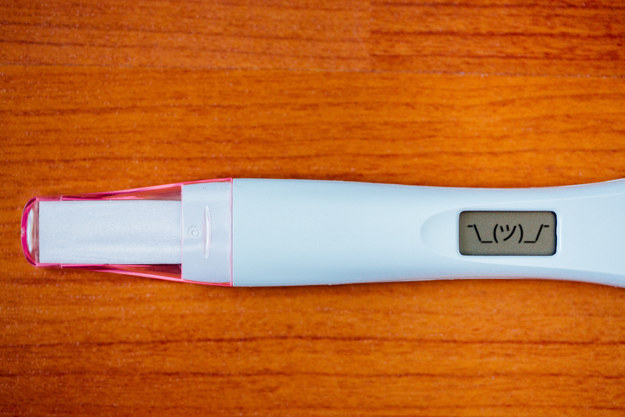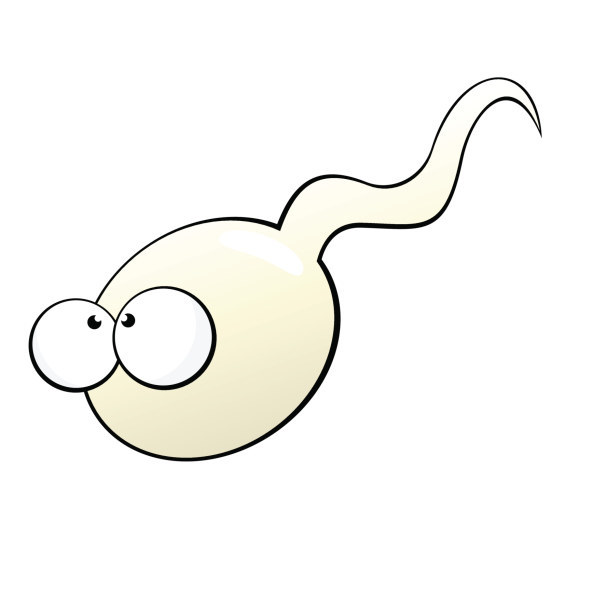If you’re ever thinking of having kids, here are some things you should know.
frentusha / Thinkstock / Getty
Heads up: This story addresses fertility issues that specifically apply to cisgender men and women. Cisgender means that you identify with the gender you were assigned at birth. We’ll be posting a story about everything that trans individuals should know about fertility in the near future, and will update this story with that link as soon as it’s live.
If you think you might ever want kids, you should start thinking about it and planning for it in your twenties.

Yes, seriously! “Just like we plan for retirement, we should plan for reproduction,” Dr. Lubna Pal, reproductive science specialist, OB-GYN, and director of the Polycystic Ovary Syndrome Program at the Yale University School of Medicine tells BuzzFeed Life. That’s because there are a lot of things that might make it harder for you to get pregnant in the future, and it’s important for you to know about them now so that you can better understand your own risks and make informed choices about your potential timeline. Start talking to your doctor about it, if you haven’t already.
Fertility issues can affect both men and women. It’s a couple’s issue, not just a woman’s problem.

Dietmar HÃÆÃÂpfl / Getty Images
When a couple seeks help for fertility issues, about a third of the time it’s due to male-factor infertility, a third of the time it’s female-factor infertility, and the other third is a combination problem — where both partners are contributing, Dr. Landon Trost, assistant professor of urology and head of Male Infertility and Andrology at Mayo Clinic in Rochester, MN, tells BuzzFeed Life.
It can take a while to get pregnant, even for young, fertile, healthy couples.
This means that it’s totally normal to try unsuccessfully for many months, and not necessarily a sign that anything is wrong if it’s taking some time.
If you think that you might put off having kids until your mid- to late-thirties, you should get an evaluation well before that to find out if that’s a viable option for you.
“Get an evaluation, and get one early,” Molinaro says. “Going in at 32 or 35 makes a world of difference. Anyone who’s thinking about delaying childbearing in their thirties, it’s a good idea to go in for an evaluation, just to see where you’re at. If you get an evaluation that looks good, then you know you have a few more years. But you don’t want to show up [in your late thirties] and you’ve been putting it off, and find out that it’s too late.”
Doctors can perform a blood test to check on your egg reserve, and you can get it anytime.
One in eight couples have trouble with fertility.
But that doesn’t mean that one in eight couples will never have babies. More on this here.
If you’re a woman under 35 and trying to get pregnant, you and your partner should try for a year before going to see a specialist for help. If you’re 35 or over, seek help from a specialist after six months.
The recommendations change at 35 because it becomes harder to get pregnant, there’s an increased risk of miscarriage, and an increased risk of genetic problems. According to the CDC, about a third of couples where the woman is over 35 have fertility problems.
If you’re a woman 40 or over and trying to get pregnant, you should probably go to a specialist at the outset, to learn more about your odds and your options.
Age is a major factor, even if you’re in perfect health.
http://instagram.com/p/1_5f8XB8rw
Other factors and influences can make your age a bigger deal.
Here are some lifestyle factors that can play a role:
http://instagram.com/p/yMQE7hxKxj
Small changes to your lifestyle can potentially make a huge difference in your fertility — that’s true for both men and women, Trost says. These factors include:
WOMEN: • Smoking cigarettes — according to the ASRM, women who smoke go through menopause roughly four years earlier than women who don’t. Infertility rates among smokers are also about TWICE as high as among nonsmokers. • Exposure to secondhand cigarette smoke • Chronic stress • Drinking alcohol • Eating a poor diet and not getting enough exercise
MEN: • Smoking marijuana can definitely hurt your sperm • Taking testosterone to build muscles can hurt your fertility • Drinking alcohol and using cocaine • Smoking cigarettes • Eating a poor diet
And here are some health conditions that can also make it harder to conceive:
http://instagram.com/p/1lpYJVRK7U
WOMEN: • Being overweight or underweight • Infrequent and inconsistent periods • Endometriosis • Polycystic ovarian syndrome (PCOS) • Uterine fibroids • Endocrine disorders and more
MEN • Weight issues • Varicoceles (or varicose veins around the testicles) • Hormone disorders • Diabetes • Thyroid problems • Previous trauma to the area and more
Your mom’s pregnancy and menopause history might be able to tell you something about your own fertility.
If your mother went through menopause in her early forties or late thirties, that could be a sign that you might struggle with infertility. The same is true for if she experienced difficult pregnancies, uterine fibroids, or endometriosis. Be sure to talk to your doctor about your family’s reproductive history.
And STIs can impact your fertility, so if you’ve ever had one, you should talk to your doctor about what that might mean.
Technology is wonderful, but it’s not a sure thing.
https://instagram.com/p/1weuyZGpxR
There’s also the fact that sometimes it might be too late to undergo certain fertility treatments. “We don’t know how to make new eggs or grow new eggs,” Molinaro says. “Once a woman is out of eggs, she’s out of eggs. She can use donor eggs, but that’s all.” This means that it’s possible to wait too long to seek certain fertility treatments, if your goal is to use your own uterus and your own eggs to have a baby (rather than a surrogate or donor eggs).
You never know what other people have been through to get pregnant, and you shouldn’t compare yourself to them.
“I think the most important thing that people need to understand is that every case is different, every couple is different, and what you might have heard about [someone else] getting pregnant in different ways is not necessarily 100% correct,” Molinaro says. “A lot of patients come in because they had a friend get a certain treatment. But the truth of the matter is that every situation is different and you don’t know what lengths people have gone through to get pregnant.”
For example: Celebrities who get pregnant in their late forties may very well have done so using donor eggs, or using their own eggs that they had frozen years before. But the tabloids don’t go into that detail, and you wouldn’t know either way. The point is: Don’t assume something will work for you because it worked for someone else.
If you’re going to freeze your eggs, the best time to do it is in your twenties or early thirties.
BuzzFeed Life reported on this previously in . The younger you are when you get your eggs frozen, the more likely it is that the eggs you’ve frozen are viable and high-quality. If you’re in your mid- to late-thirties when you freeze your eggs, though, you risk not having enough healthy eggs available for when you want to use them down the line.
Egg-freezing as an elective procedure is still considered “experimental.”

danielle71 / Getty Images/iStockphoto
In 2012, the ASRM declared that egg freezing shouldn’t be considered experimental for women who use it to preserve their fertility (for instance, if they have endometriosis, or if they have cancer and plan to undergo chemotherapy). But in the same report, they indicated that voluntary egg-freezing should still be considered experimental, because there’s not enough research to prove that it’s worth it. Read to learn more about this.
Age impacts sperm, also.
Problems with sperm count and motility can sometimes be fixed with a simple operation, or even some small lifestyle changes.
Don’t assume that a year of not getting pregnant means that you won’t ever have babies.
“Infertility treatment has come a long way in the last decade,” Molinaro says. “We’ve gotten a lot more successful at helping people get pregnant. The hardest step is the first step — looking to go get that evaluation. For a lot of patients, a lot of people are suffering in private. Infertility is common, lots of people go through it, and taking that first step is really important. Reaching out to get an evaluation and see a fertility specialist, reaching out to find out what’s going on. You’ll never know if you don’t get your evaluation to figure out what’s happened.”
Bottom line: if you know you want to conceive one day, you should start thinking about and planning for that early.
http://instagram.com/p/19kdBrh8hc
Take care of your body, think about your family history, think about your own medical history, and talk to your doctor about what you need to do and what tests you might want to get in advance. This way you can know early enough if you probably have the luxury of waiting until you’re in your mid-thirties to get going, or if you might want to think about other plans.

















